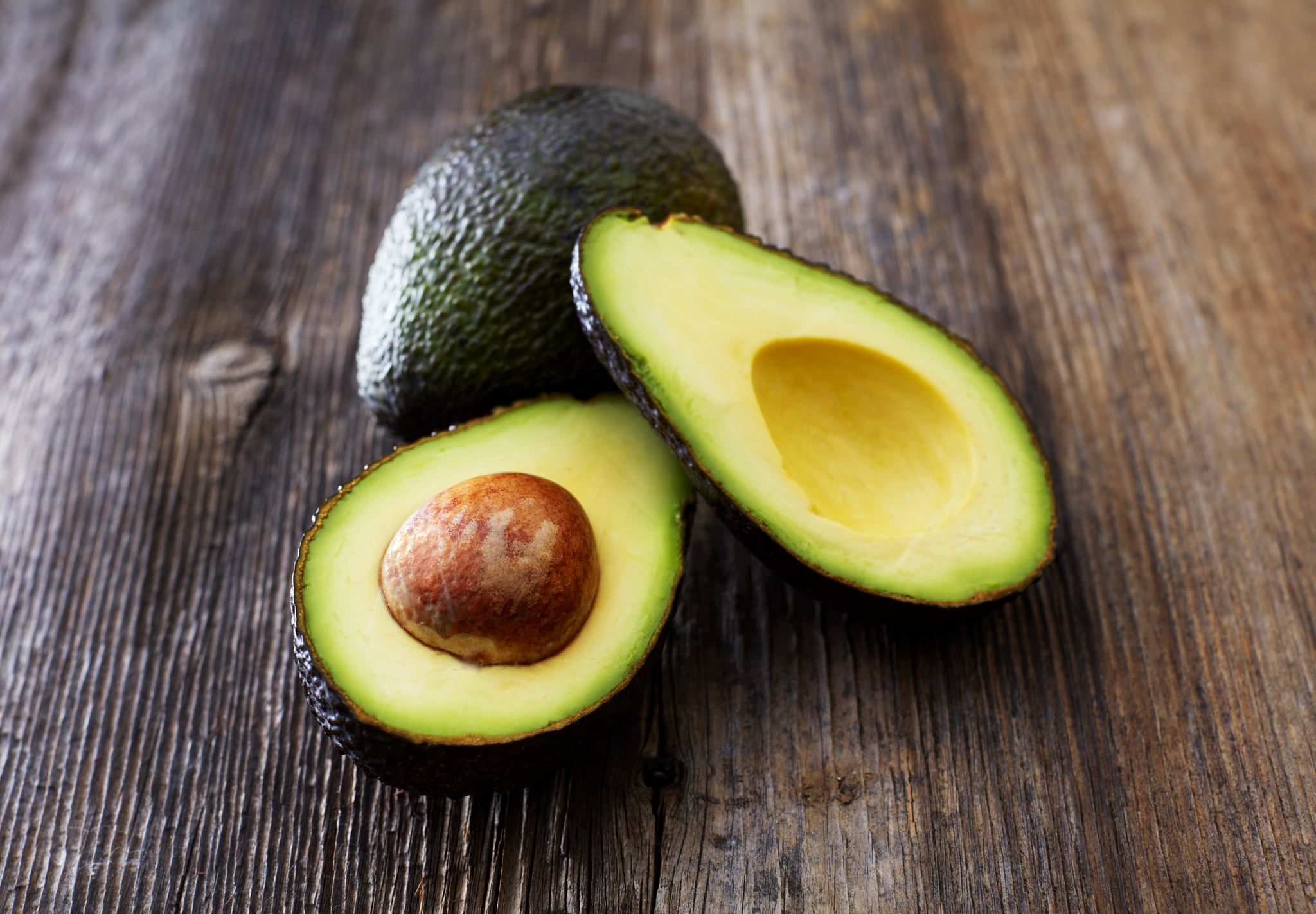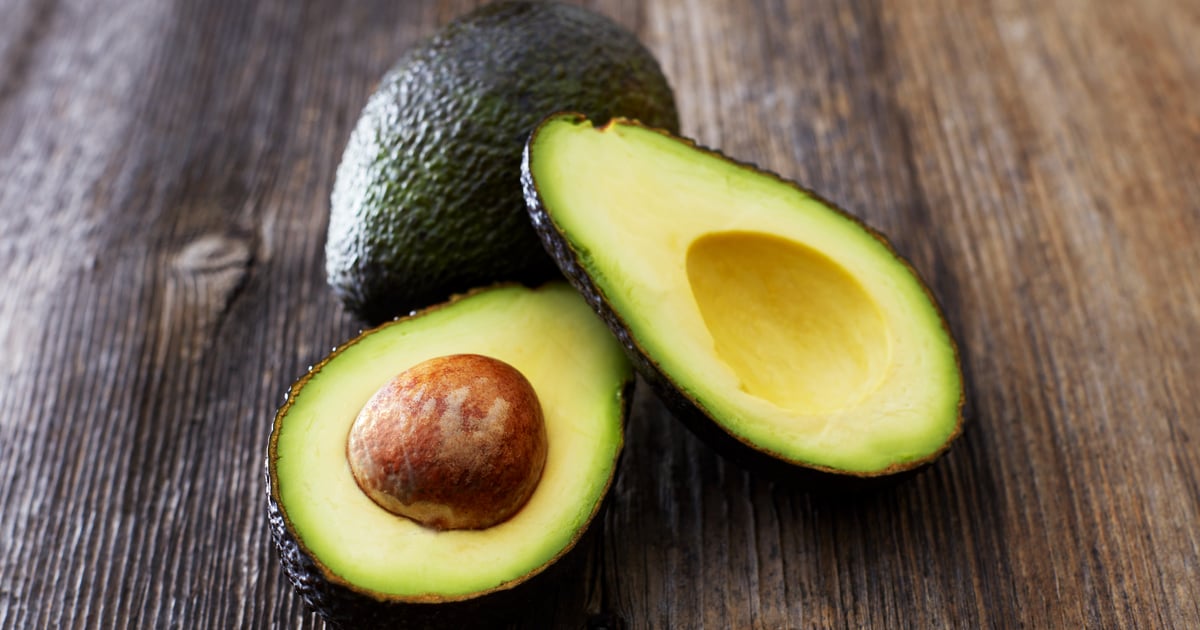
Whether you slice it on toast, mash it into guacamole, or blend it into creamy smoothies, avocado is arguably one of the most delicious and versatile foods out there. And sure, it might be weird to poke fun at the ongoing collective obsession with avocado toast, but that doesn’t stop anyone from ordering (and loving) it. Easy, filling, and deliciously smooth, avocado really is the perfect topping for so many dishes, provided you can catch it in that two-hour timeframe when it’s perfectly ripe. And it certainly doesn’t hurt that this fruit (yep, here’s your reminder that avocado is a fruit) is as nutritious as it is delicious.
“Fats like avocados are an essential part of every meal because they provide important nutrients like vitamin E, fiber and potassium,” says Taylor Fazio, RD, CDN, a registered dietitian and wellness consultant at The Lanby in NYC. The combination of a pleasing neutral flavor, creamy texture, and rock-solid nutrition is why avocados have become so enduringly popular: they taste good while you eat them and help you feel good afterwards. So what makes this fruit so good for you? Here’s the rundown of the health benefits of avocados before you scoop them your next, avocado for toast, guacamole, or a salad topping.
Health Benefits of Avocado
Avocados have numerous health benefits that help your body function and feel better, from your gut and heart to your skin and hair.
- Avocados are rich in omega-3 fatty acids: Avocados are a rich source of omega-3 fatty acids, a type of fat that has been shown to support heart health, Fazio tells POPSUGAR. (Fish, olive oil, and nuts are also good sources of omega-3 fatty acids.) According to the scientific journal Traffic, for example, a large study of people taking omega-3 fatty acid supplement capsules experienced a 15 percent reduction in death, heart attack, and stroke, a 20 percent reduction in death “from any health-related cause,” and a 45 percent reduction in percentage reduction percentage reduction in “sudden death from a heart attack”. The journal also notes that omega-3 fatty acids have been shown to “modestly” lower resting blood pressure and reduce body fat, “both of which may improve heart health.”
- Avocados are good for your gut: Avocados are high in fiber, with one serving (50 grams, or one-third of an avocado) containing seven grams of fiber USDA. Fiber helps keep your digestive system regular and encourages the growth of good bacteria in your gut. Most recently a study from 2021 in the Journal of Nutrition found that in a group of 163 adults who were considered overweight, those who consumed avocado daily had lower stool bile acid concentrations. Higher bile acid concentrations can cause intestinal inflammation and are linked to the growth of dangerous microbes linked to colon cancer.
- Avocados May Help Reduce Inflammation: Avocados have also been linked to reducing inflammation in the body, with avocado seed extract exhibiting anti-inflammatory properties in a 2019 lab study by Penn State. This could be because avocados have also been linked to lower levels of bile acids in the stool, and higher levels cause intestinal inflammation. Recent Research however, has disputed the effectiveness of avocados as an anti-inflammatory, and more studies in this area are needed to confirm these health benefits.
- Avocados are rich in nutrients: In general, avocados are a good source of many important micronutrients, including vitamins C, E, and K, as well as riboflavin, magnesium, potassium, and more. Avocados are also high in folic acid, a nutrient that’s especially important during pregnancy.
- Avocados are good for hair and skin: Avocado face masks are great, but it turns out that eating an avocado every day can have a huge impact on your skin, too. A 2022 study in the Journal of Cosmetic Dermatology found that women who ate an avocado a day for eight weeks experienced a significant increase in skin elasticity and firmness compared to women who didn’t, which has a lot to do with the nutrient content of the avocado and all those omega-3 has to do with fatty acids. They Also Play a Role in Improving Your Hair Health: A 2015 Study by Journal of Cosmetic Dermatology found that taking omega-3 and omega-6 supplements along with antioxidants (also found in avocados) in women for six months “is effective in preventing hair loss by improving hair density.”
Is Avocado a Healthy Fat?
Avocado is definitely considered a healthy fat. According to that USDAOne serving of avocado contains over seven grams of fat, with the majority being monounsaturated fat. “Monounsaturated fats are considered cardioprotective,” explains Fazio, meaning they may help lower negative cholesterol levels in your blood, thereby reducing your risk of heart disease and stroke. Avocados also contain omega-3 fatty acids (mentioned above), a type of polyunsaturated fat that also plays a role in improving heart health as well as potentially reducing inflammation, among other benefits.
Does Avocado Have Protein and Carbohydrates?
Although avocados contain protein and carbohydrates, they are not considered a significant source of either. A third of an avocado contains about one gram of protein and four grams of carbohydrates. “Avocados are considered a better source of fat and fiber than carbohydrates and proteins,” says Fazio. However, it’s easy to pair avocado with protein and carbohydrate sources for a quick, filling meal or snack, such as a snack. B. On a piece of toast (a good source of carbohydrates) with a soft-boiled egg (a good source of protein). ).
Is Avocado Good for Weight Loss?
“Avocados are a great addition to a weight-loss diet,” says Fazio. That’s because avocados are high in healthy fat, which takes longer for your body to digest and keeps you fuller for longer. That’s because “fats have a longer transit time through our digestive tract,” explains Fazio, “which increases the fullness of avocados in a meal.”
Avocados are also high in fiber, which can also help with weight loss. A Study 2015 of 240 adults with metabolic syndrome found that a goal of eating 30 grams of fiber per day helped participants lose weight (4.6 pounds on average over 12 months), lower their blood pressure, and improve their body’s response to to improve insulin.
Eating avocados can be considered part of a healthy weight loss approach, but you are unlikely to lose any significant weight without making other lifestyle changes. The best way to lose weight safely is to combine a consistent exercise program with a nutritious diet, of which avocados can definitely be a part.
Does Avocado Make You Poop?
Yes, avocados can make you poop. That’s because avocado is high in fiber — 3.3 grams per serving of avocado, according to the USDA — and “adequate fiber intake can help support regular bowel movements,” says Fazio. FYI: Dietary fiber actually increases the weight and size of the stool while softening it Mayo Clinic explains what makes it easier to pass.
Fazio recommends eating at least 28 grams of fiber per day, so eating 100 grams of avocado (about two-thirds of an avocado) would put you at 6.6 grams of fiber, almost a quarter of the daily recommendation. This is good to know if you want more regular bowel movements and less strain when pooping; however, it also means that avocado is Not the best meal right before a run or intense cardio workout when you want to avoid gut discomfort or a break during your workout.
Does Avocado Have Cholesterol?
According to the USDA, avocado contains no cholesterol. In fact, avocados can be a great diet choice if you’re looking to lower overall cholesterol levels Mayo Clinic notes that eating one avocado a day as part of a heart-healthy diet may help improve “bad” cholesterol (aka lipoprotein cholesterol) levels in people who are overweight.
Does Avocado Have Iron or Potassium?
While avocados aren’t high in iron (at about 0.03 milligrams per serving, or about 0.02 percent of your daily requirement), they’re a great source of potassium. One-third (50 grams) of an avocado contains 243 milligrams of potassium, and increasing it to two-thirds gives you about 485 grams of potassium. That’s more than a banana, which contains 422 grams of potassium. That’s good news, because potassium is a crucial nutrient in our diet, says Fazio. “Potassium is an important electrolyte that supports sodium balance in the blood and helps maintain fluidity,” she explains.
Do Avocados Really Have Sexual Benefits?
While avocado alone won’t drastically affect your sex life, it does have some nutritional properties that can provide a sexual boost. research shows that increased blood flow generally plays a large role in arousal as blood rushes to the genital organs. Omega-3 fatty acids, which are abundant in avocados, can help increase and improve circulation; research says, omega-3 fatty acids can help prevent plaque from forming in the arteries, which helps blood flow. Avocados also contain vitamin E, an antioxidant that helps dilate blood vessels and can reduce sperm DNA damage, according to a 2016 review in Internal Journal of Reproductive Biomedicine.
It really doesn’t matter which aspect of health you focus on: from sexual health to skin to gut and heart health, eating avocado regularly can help keep everything going. Pass the avocado toast, please.
